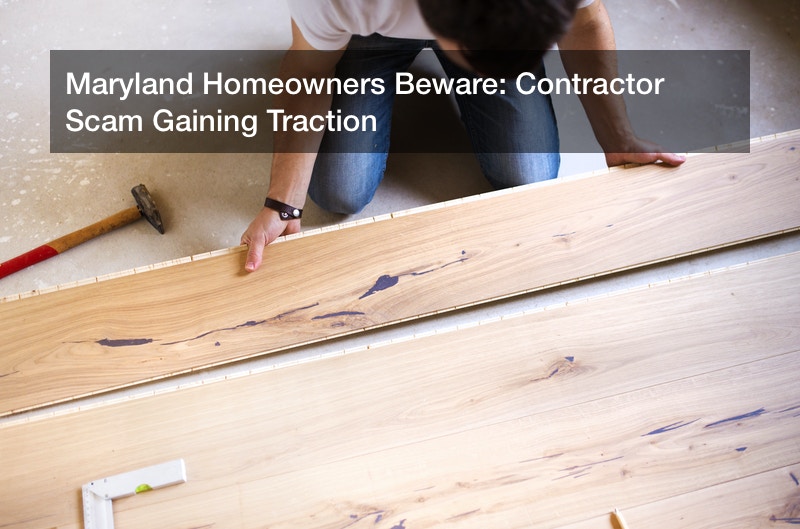
Remodeling is a very important part of homeownership. For many, the ability to customize and improve a home is the best part about being a property owner. Want to add a metal building to your property? There’s nothing stopping you. If you’re careful with your budgeting and planning, remodeling projects can be done cost-effectively. The average return on investment (ROI) on a midrange kitchen remodel, for instance, is roughly 59%.
Unfortunately, there are fraudsters out there who will stop at nothing to take advantage of homeowners excited for remodeling work.
In Maryland, a remodeling scam has begun making the rounds, putting prospective homebuyers and homeowners at risk of falling into financial trouble. According to NBC Washington, scammers are posing as property owners asking contractors to send money to subcontractors, who are also scammers.
“I started getting a series of phone calls from roofing contractors, and they said, ‘I just want to check and see if this is legitimate,” said Stacey Sauter, a realtor for Long and Foster. It was not legitimate. She stated that at least eight contractors have already fallen victim to this scam.
A standard 2,200-to-2,600 square foot roof will cost DIY homeowners between $1,000 and $4,000 to fully replace; professionals will typically charge $2,000 to $8,500.
An email from one of the scammers details how the scheme is designed to work:
The scammer agrees to pay the contractor $10,000 and asks for credit card information. The contractor is then instructed to keep $2,600 for a deposit on the work (in this case a roofing project) and wire the rest of the money to a subcontractor, who is actually part of the scene. The credit card number would then be stolen and the $7,400 would be sent to the fraudulent subcontractor.
In a high-demand seller’s market, a well-priced home could sell within three to 10 days. In a buyer’s market, it could take a month or more to sell.
“I was very concerned for my sellers because if one of these contractors slipped through the cracks and actually performed the work and puts a new roof on the property then realizes he wasn’t going to get paid, whether it was from the legitimate owner or the scammer, he could put a mechanic’s lien on the property, which therefore puts a cloud on the title, and that means we can’t sell the property until that cloud has been cleared,” added Sauter.
Though this is an elaborate and well-crafted scam, there are plenty of simpler schemes that are just as effective — and costly. Here are some home improvement scams that homeowners need to be aware of:
- Free mold testing — Mold is a serious household issue that needs to be addressed right away. Sadly, there are fraudulent contractors and inspectors who act like they know how to identify and rid a home of mold, only to walk away with money and never perform any actual work. These scammers make their money convincing homeowners there’s a mold issue and then immediately promise to fix it.
- Natural disaster specialists — “For distraught homeowners, this kind of offer can look like a blessing, especially when other companies are busy with a long wait list for service,” said Aaron Task, Vice President and Editor-In-Chief of Experian Consumer Services. “Usually, their work is second-rate and by the time you discover the problem, it’s too late. They’ve already left with your insurance money, and you have to pay another crew to fix their mistakes.”
- “These things happen” delays — Some scammers go the extra mile and actually perform legitimate remodeling work before they strike. They will likely “discover” something untrue and force homeowners to shell out extra cash. These preventable and fraudulent delays, as well as order changes, are surefire ways scammers pad their wallets.
It’s recommended to always remain vigilant when searching for prospective home remodeling contractors. Considering it already takes over $15,000 to sell a home, it’s important to keep your renovation money for the experts. Ask for references, talk to past clients, and always go with your gut.
